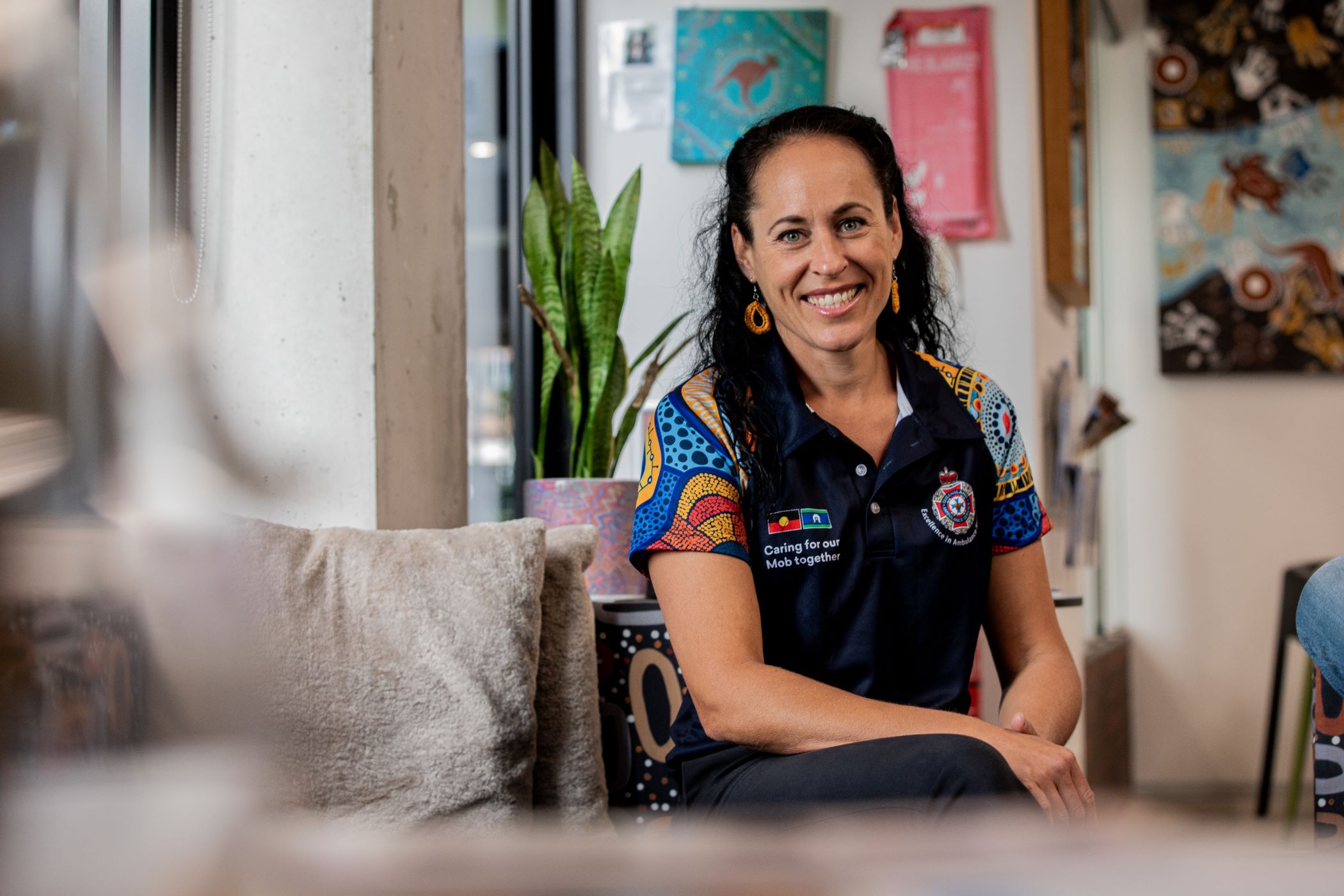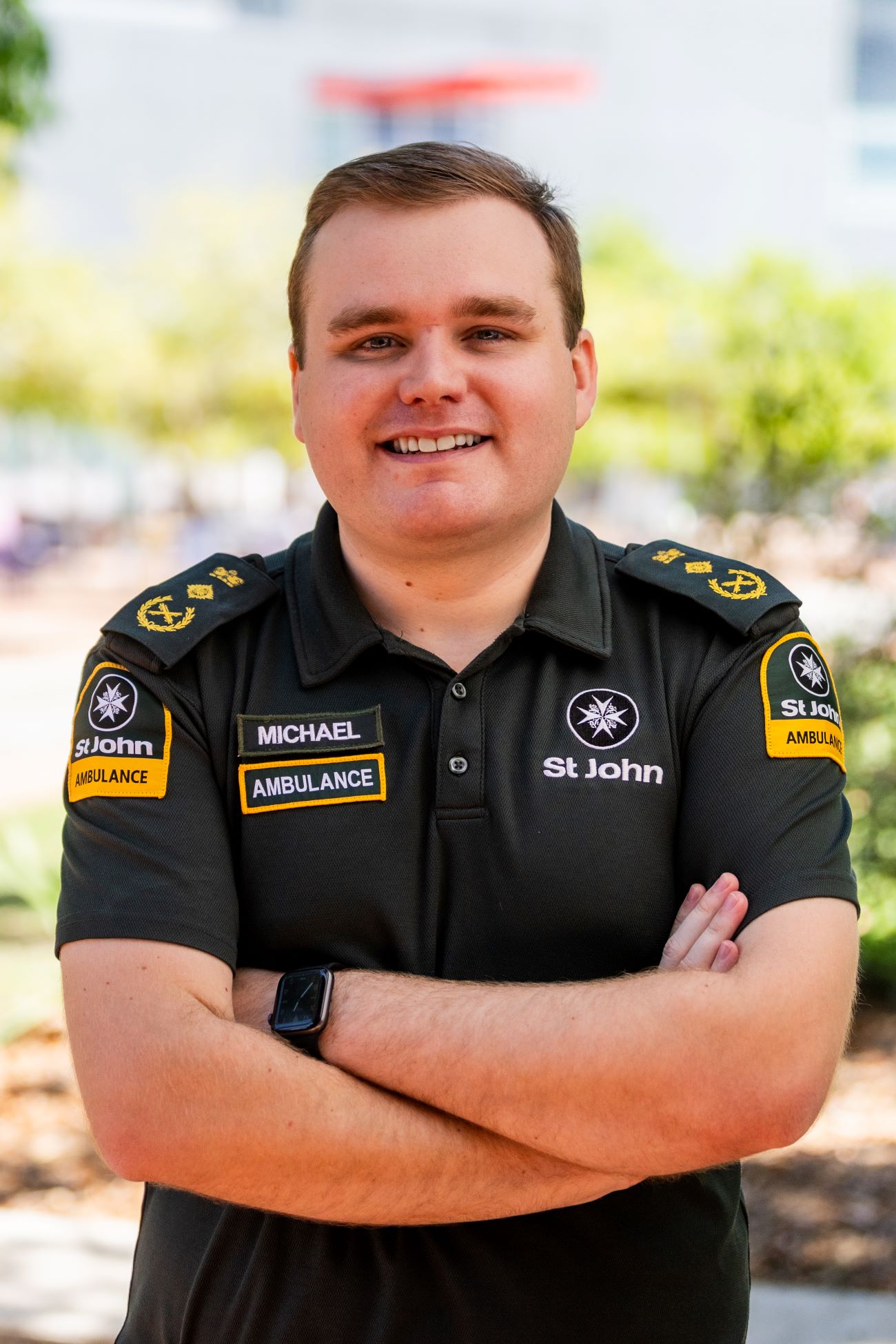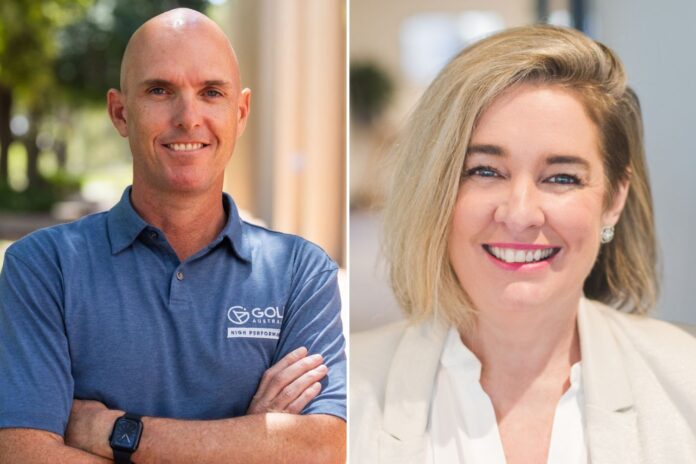A high-performance golf coach, a food systems researcher and two paramedicine graduates focused on improving care have been recognised at this year’s University of the Sunshine Coast’s alumni awards.
Tony Meyer, high-performance director at Golf Australia, and Larelle McMillan, research director of CSIRO’s sustainability program in agriculture and food, received UniSC’s Outstanding Alumni Awards for 2024.
The Regional Achievement Award went to advanced care paramedic Emma Williams, while Michael Andrews, executive officer of St John Ambulance Solomon Islands, was named Rising Star.
Mr Meyer, who completed his Sport and Exercise degree in 2014 and a graduate diploma in 2017, has worked with golfers including Cameron Smith, Minjee Lee and Hannah Green, and led the Australian golf team at the Paris Olympics with Karrie Webb.
He said one of the benefits of his university education was learning how to identify and critically analyse the important elements of a complex system, such as high-performance sport.
“I wouldn’t be where I am today professionally without the skills and knowledge I picked up during my time studying at UniSC,” Mr Meyer said.
Ms McMillan, one of UniSC’s first Environmental Science graduates in 2003, has worked with the Queensland Government, non-government organisations, the private sector, run her own consultancy and pursued postgraduate study.
She now leads a team of 110 researchers looking for opportunities in agri-food system sustainability. Prior to her current role she co-managed the $40 million Africa Food Security Initiative.
“Studying at the University of the Sunshine Coast set me on a great path towards systems research for sustainability,” she said.
“I became interested in the role of evidence, community values and science policy, and started the first environment club on campus with peers who became lifelong friends.”

Emma Williams, who graduated with Paramedic Science degree in 2018, has held senior advisory roles with the Queensland Ambulance Service allowing her to drive CPR awareness and to work with stakeholders to improve health outcomes for Aboriginal and Torres Strait Islander people.
She also mentors UniSC’s Indigenous students and helped grow the number of Indigenous paramedic cadets in the region.
“My passion is finding innovative ways to improve health, education and employment outcomes for Aboriginal and Torres Strait Islander peoples,” she said.
Her citation also recognised her involvement in fundraisers, such as walking from Alice Springs to Broome to raise $3500 for an Indigenous-owned and run health service, cycling solo from Alice Springs to Alexandra Headland to raise $6500 for QAS Legacy; and walking with the Blak Trekkers team to Everest Base Camp, which collectively raised $65,000 for the Black Dog Institute.
Mr Andrews, a former Caloundra lifesaver who graduated in Paramedic Science in 2019, played a significant role in introducing a mobile eye care unit as a director of St John Ambulance, Queensland.

In his executive role in the Solomons, he has overseen the introduction of new models of care focused on curbing domestic and family violence, mental health, diabetes, fall prevention and nurse-led triage, and has recently secured Australian Government support for a national ambulance service connecting 900 islands.
“I believe that where someone is born or chooses to live – whether in the busiest cities or the remotest villages – shouldn’t dictate their health. I’m working to ensure everyone can access healthcare, regardless of location or circumstance,” he said.
He is currently completing his Masters at Oxford, is a non-executive director of a Queensland charity, has founded a company to donate medical supplies overseas, and was Young Volunteer of the Year Queensland.





